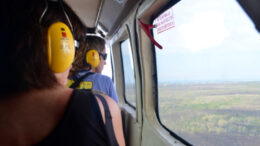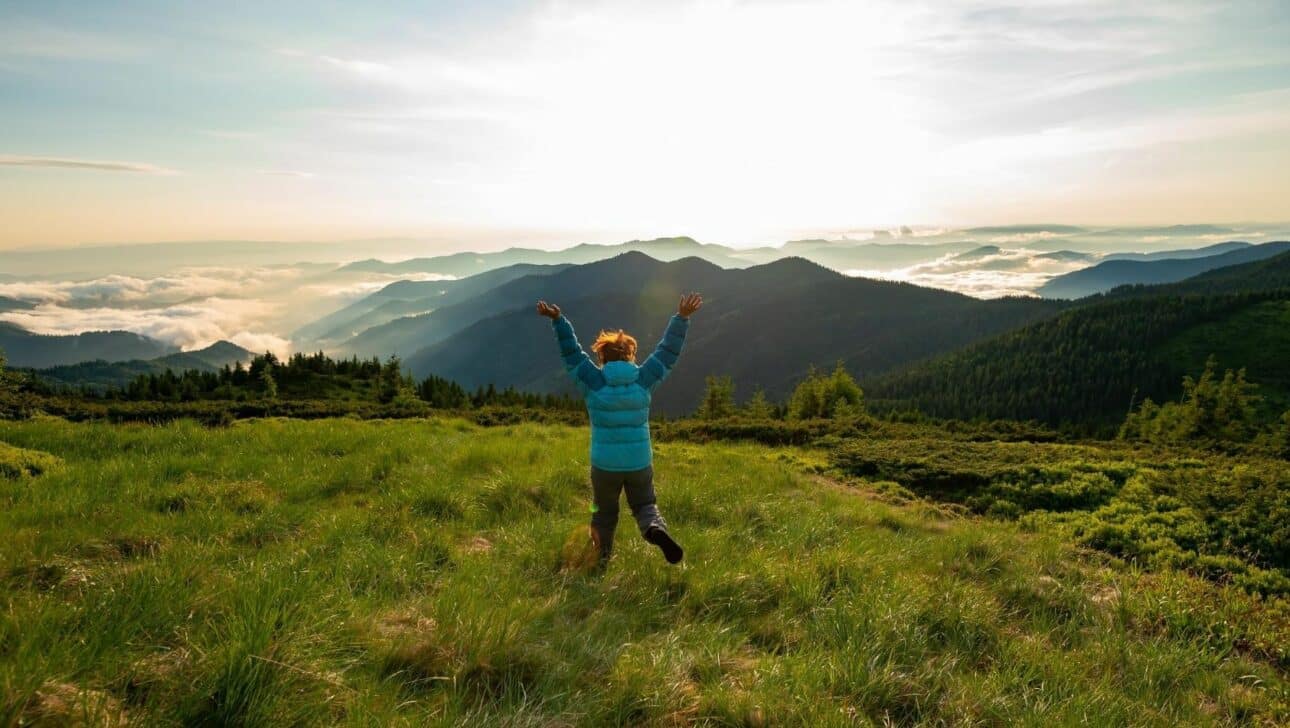Because you’re reading this, there’s a very good chance that travel makes you happy. Experiences of joy and thoughts of gratitude and contentment very often have direct links to vacations.
But what is it about travel that creates such feelings of happiness? And does the fact that it makes us feel good in the moment, mean travel is good for us?
An increasing body of scientific evidence is demonstrating that travel has long term benefits, both mentally and physically.
Since travel itself is really comprised of three stages– the planning, the trip itself, and the afterwards– we delved into each stage learn from scientists the answer to the eternal question: “Why does travel make us so happy?”
Before traveling – the planning and anticipation
Imagine closing your eyes and answering this question: If you could be anywhere in the world, right now, where would you be?
For most people, a flurry of destinations, lodgings and travel experiences flood the mind. (Moroccan sand dunes, a Tuscan villa, sunset at the Grand Canyon…) Your brain quickly processes and imagines the views you’ll see, the food you’ll savor, the climate you’ll feel on your skin. And just like that, you’ve given yourself a spark of happiness.
Science tells us that this is because thinking about future travels is good for our mental health. We transport our minds out of the now to what we perceive to be happier times. This is particularly significant and important in times of chaos and uncertainty, because it produces optimism.
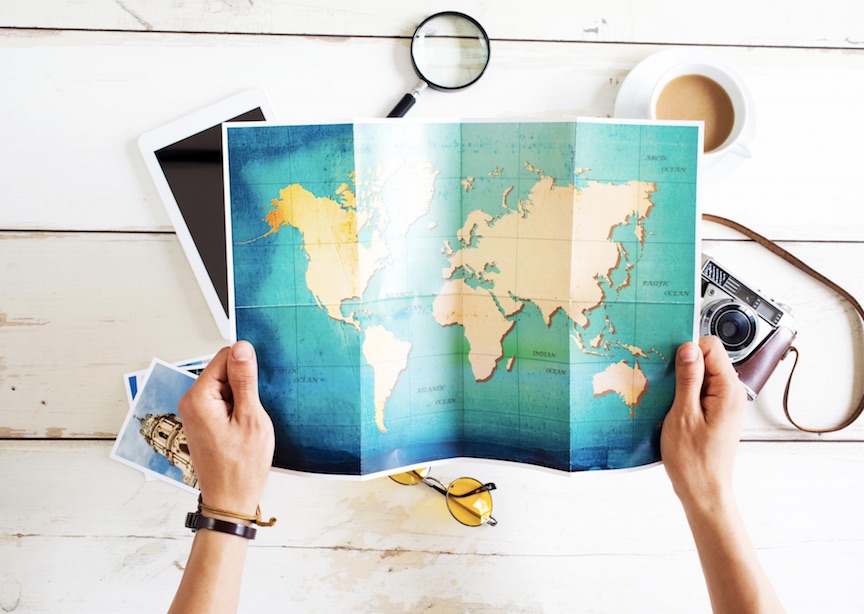
As if that is not enough, it turns out that while thinking about travel makes us happy, planning travel and having it on the calendar to look forward to makes us even happier.
A recently released study published in Springer investigated the link between happiness and travel. Researcher Jeroen Nawijn found that people were happiest when anticipating a vacation. “For most, the enjoyment starts weeks, even months before the holiday actually begins,” he says. “We have an innate need for wandering, possibly a leftover of our hunter-gatherer past and that this need can already be partially gratified by anticipation.”
The study goes on to say that planning, confirming and looking forward to travel gives us a feeling of control. Intuitively, we know that this is something we are craving more than ever. The science tells us that the lack of control we are feeling is one of the biggest causes of depression in the current age.
On top of that, anticipation of a future trip, even if it’s months away, literally improves our chemical makeup. It delivers a delicious dose of feel-good dopamine, which the Coleman Institute calls the “anticipation molecule”. Dopamine is released in large amounts when “we both think about the pleasurable experience and there is a realistic opportunity that we will be able to have the pleasurable experience – true anticipation.”
While Traveling
Just as there is more than one element to the pre-trip stage that have a positive effect on us mentally and emotionally, there are multiple aspects of taking a trip make us feel better physically and emotionally. These include:
Exercise
Getting the heart rate up and sweating out toxins, surging endorphins and reducing tension—exercise tops almost every list of mood boosting activities. When in a group, even better, says JAOA.org. Travel experiences provide a group workout without any convincing necessary and often without even realizing that it’s taking place. Step counts goes into overdrive exploring new places. Hiking to a waterfall in Costa Rica, walking on a glacier in Iceland, snorkeling in the Galapagos, kayaking in Norway, and other vacation activities are just as good as a gym session but feel more of a vacation experience.
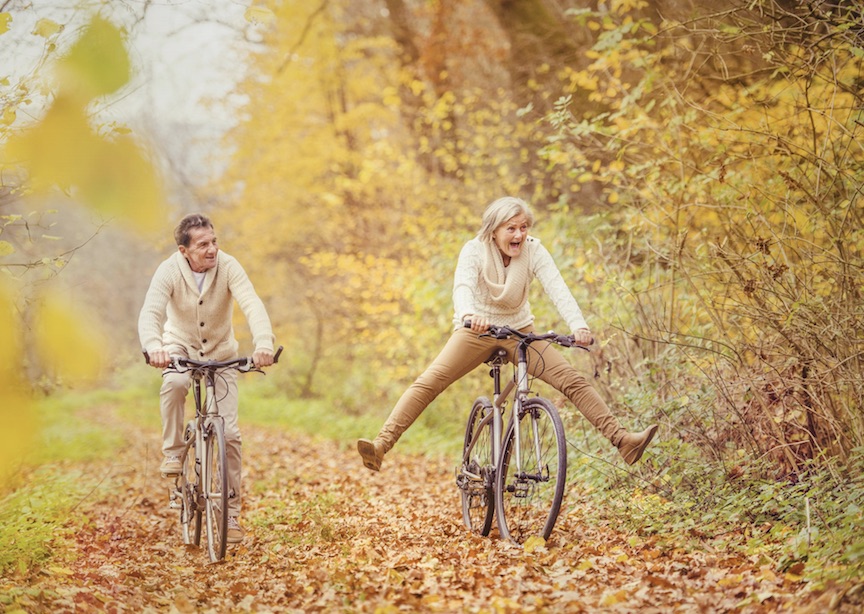
Sunlight
Healthline lists the many mood lifting benefits of spending time in the sun. It increases serotonin production and provides a dose of Vitamin D. Travel is often outdoors and so offering plenty of daylight. Rather than dragging oneself off the couch for fresh air, we find we’re raring to go.
Massage
A report from the International Journal of Neuroscience showed that massage boosts happy hormones and reduces the stress hormone. While not all travel includes massage, people generally say they are more open to opting for a massage while traveling. And so, they are more likely to get its benefits on a trip.
Change of Scenery
Writing for Psychology Today, behavioral scientist Amy Hale Ph.D. says, “Our physiological, psychological, and emotional states change as our surroundings change. Natural places relax us. We’re able to focus better and we feel more emotionally engaged.” Switching up our surroundings is essentially flicking a switch for a mental reset. We take our minds off autopilot and focus on interesting and beautiful things around us. She explains, “We feel as though we have a fresh perspective on old problems or nagging worries and can even feel as though we are renewed or reborn.”
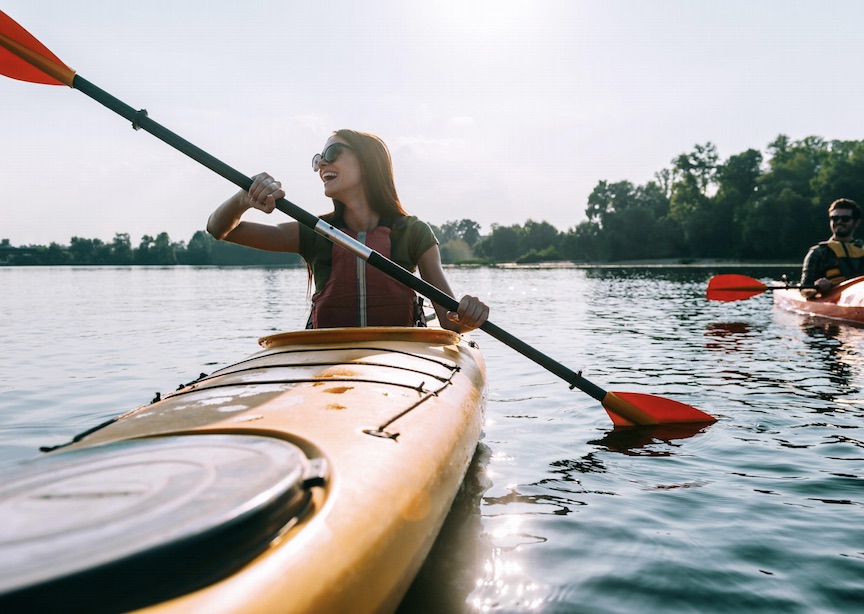
Socializing
Loneliness is bad for us. Shockingly, it is as bad as 15 cigarettes a day, according to studies by NICHM.org. It’s also the main contributor to the 370% surge in depression and anxiety screenings during coronavirus, says Mental Health America. On the flip side, being social is extremely good for our brains and our bodies. In a Medical News Today article, Psychologist Susan Pinker goes as far as likening it to a vaccine. “Face-to-face contact releases a whole cascade of neurotransmitters and, like a vaccine, they protect you now, in the present, and well into the future,” she explains. Travel injects a super dose of socializing, including the quality time and space to talk, in person with extended family, fellow travelers, guides, hoteliers, locals… and the list goes on.
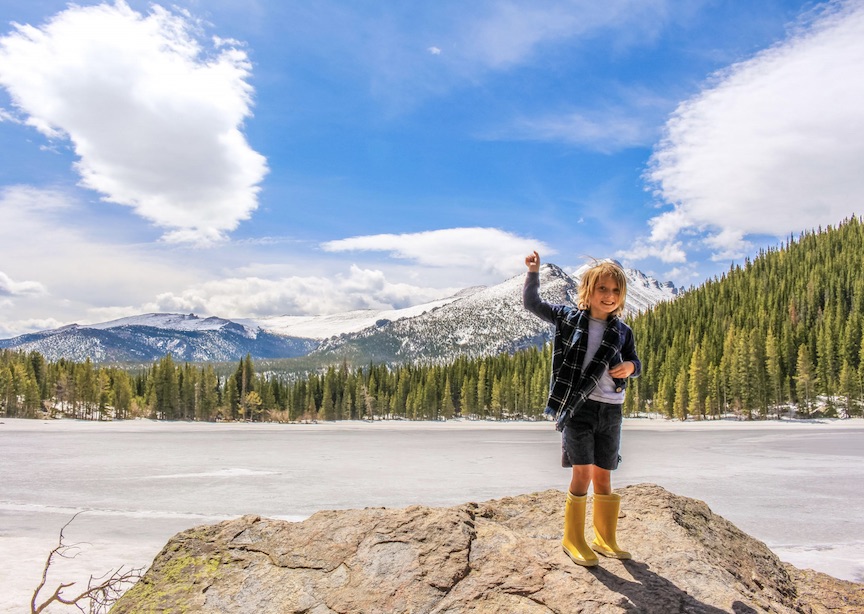
Stepping out of our comfort zones
Another Psychology Today writer, psychiatrist Abigail Brenner explains that, “Creating a comfort zone is a healthy adaptation for much of our lives. But so is stepping out of our comfort zone when it’s time to transition, grow, and transform.” That can mean something as small as trying new cuisine in Vietnam and as big as a bungee jump in New Zealand. There’s a life lesson to be learned in being vulnerable, giving ourselves a challenge, and realizing our ability to do amazing things.
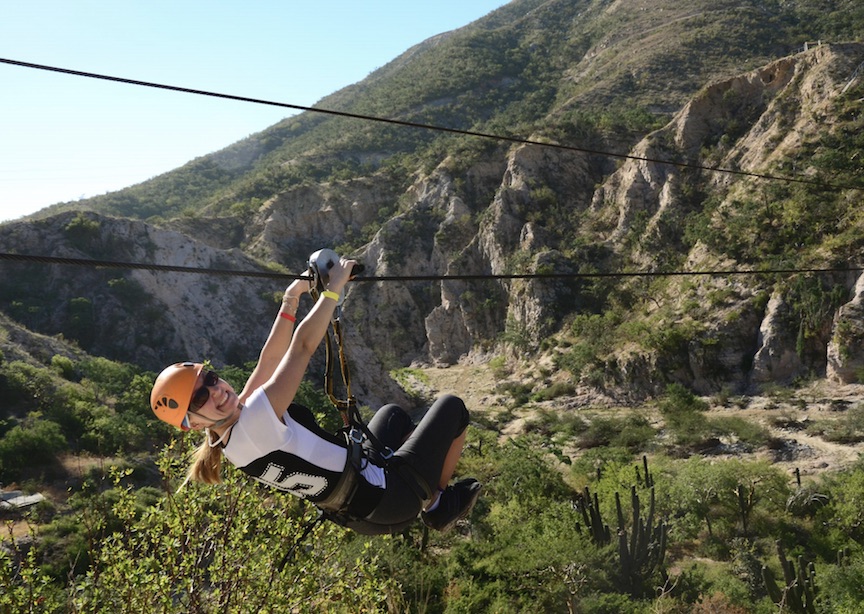
Doing good
Altruistic acts aren’t only good for the people being helped, they’re good for “… the well-being, happiness, health, and longevity of those doing those good acts,” says researcher Stephen G. Post in a UC Berkeley article. Travel opens up all kinds of ways to do this: treating kids or grandkids to a vacation, supporting local communities, traveling sustainably, supporting local causes.
Stress
Not all types of stress are bad. ‘Eustress’ is the medical term for the good, positive stress we feel when heading to the airport, meeting new people and visiting a new place with a different culture and language. Casey Lee explains to Healthline how, “Eustress produces positive feelings of excitement, fulfillment, meaning, satisfaction, and well-being.” Of course, traveling can include negative stresses, but it doesn’t need to: having a trip where travel plans, activities, meals and more are taken care of by trusted professional travel planners and guides keeps this to an absolute minimum.
The Afterglow
Travel shapes the way we develop and understand the world. There are countless studies showing how it helps children grow into well-rounded adults, and new insights into neuroplasticity are proving that those travel experiences can benefit an adult’s brain as much as a child’s.
Writing for Thrive, Dr. Michael Merzenich, a global authority on brain plasticity, strongly advocates in favor of travel for long term brain health, “A big part of our brain is dedicated to navigation — to knowing where we are in the world. Exercising that navigation equipment — located in the hippocampus of your brain — is really important. It’s one of the parts of our brain most susceptible to loss as we get older. You want to keep your hippocampus in good shape.”
And, while sharing old travel photos has become a coronavirus cliché, don’t let that put you off. Those happy traveling memories are good for you.

In a study on ‘Savoring the past’ for Neuron, researchers found that recalling good memories, “… may trigger a re-experience of positive emotions associated with that day… increasing or maintaining positive feelings that contribute to one’s general well-being.” The feel-good nature of these memories was so powerful that participants tested, “… were willing to sacrifice more tangible monetary rewards in order to reminisce about positive past experiences.”
On top of this serotonin boost, it turns our thoughts turn to thankfulness, giving us time to practice gratitude for the experiences we’ve had.
The same Springer study we mentioned earlier looked into post-trip happiness as well as pre-trip happiness. Though pre-trip anticipation spiked happy feelings the most, Nawijn noted that the height and duration of happiness after traveling was directly related to how relaxing the trip was. On vacations where everything goes smoothly (Nawijn particularly cites not having to wait in lines), we can truly relax and our post trip happiness once we return home lasts longer.
Final recommendation
Keep the happiness topped up by going through photos and sharing memories. Then bring back that pre-trip happiness back by starting the planning process all over again.
RELATED ARTICLES
» The World’s Happiest Countries. LEARN MORE
» Fearless female guides’ best adventure destinations. LEARN MORE
